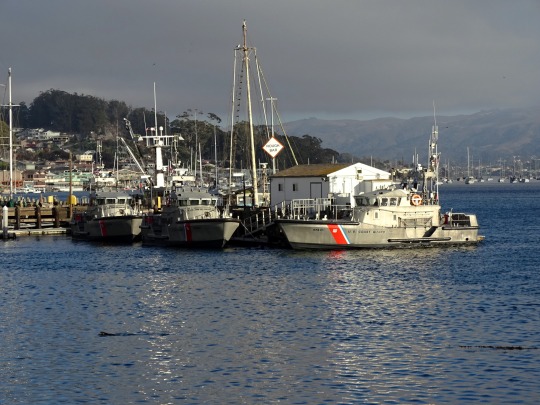#Internal Revenue Services USA
Explore tagged Tumblr posts
Text
Discover The Tax Planet, the ultimate resource for federal income tax in the USA and the key to hassle-free filing and financial success! Our skilled staff guarantees a stress-free tax season by providing exceptional insights and assistance for maximum financial success. We ensure a seamless filing process catered to your specific requirements, making it easier than ever to navigate the complexity of federal taxation. The Tax Planet can simplify the complex world of income tax by providing thorough information and committed help. Join us on the path to financial well-being, where convenience and competence come together for a profitable future.
0 notes
Text
They're jamming the signal

#don't forget the real issues#jamming the signal#The media are complicit#one man's president is another man's villain#usa politics#usa#united states#don't believe the elites#donald trump#irs#internal revenue service#external revenue service
2 notes
·
View notes
Text
Treasury recovers $1.3 billion in unpaid taxes from high-wealth tax dodgers
0 notes
Text
0 notes
Text
Jenifer McKenna at Ms. Magazine:
Within days of the election, antiabortion leaders started calling on the incoming administration to defund Planned Parenthood and family planning clinics that refer patients for abortion, and redirect that funding to “pro-life” pregnancy centers.
While serial attacks on abortion rights seize the headlines, the anti-choice movement has quietly built an on-the-ground network of unregulated pregnancy clinics—also known as crisis pregnancy centers (CPCs) and antiabortion centers (AACs)—that is eroding access to comprehensive reproductive healthcare and electioneering against abortion rights, mostly under the radar and increasingly on the public dime. CPCs pose as harmless community resources and licensed women’s health clinics in need of public support. They are, in fact, part of a multi-billion-dollar industry that is directly tied to the extremist legal and advocacy groups that overturned Roe and are now going after medication abortion, contraception, IVF and no-fault divorce. With a staggering $1.7 billion in annual revenue, an estimated 3,000 locations and 100,000 staff and volunteers, the CPC industry is the grassroots backbone of the anti-choice movement. Radical groups including Heartbeat International, Susan B. Anthony Pro-Life America, Students for Life, Turning Point USA and others—many involved in Project 2025—leverage this 50-state network to influence state policy and, under the guise of providing healthcare, siphon escalating taxpayer dollars into the antiabortion movement.
While CPCs have had some access to federal funding since the 1990s, Republican-led states have piloted a dramatic infusion of taxpayer funding into the CPC industry, especially since the 2022 Dobbs ruling. Now, as the Trump administration and congressional Republicans take power, they are certain to also ramp up federal funding for CPCs, making American taxpayers in every state underwrite these unregulated pregnancy clinics. They will justify doing so claiming CPCs “provide medical care that is driving down maternal mortality.” There is no evidence this is true. Not only are CPCs entirely ill-equipped to deliver maternal healthcare, their unlicensed practice of medicine, trafficking of medical disinformation, and unguarded collection of sensitive personal health data actually threaten women’s health and safety. Yet, in more and more communities, unregulated pregnancy clinics are the only resources available to pregnant women and teens, as maternal care deserts proliferate nationwide.
[...]
Unregulated Pregnancy Clinics Increasingly Advertise Medical Services
Crisis pregnancy centers are not medical clinics; they are unregulated religious nonprofits, run by antiabortion advocates. They are not regulated by any of the health, safety, licensing or privacy standards that govern medical offices. Yet these unregulated groups increasingly claim to offer health services. The first multi-state study of CPC websites, “Designed to Deceive,” found that over 88 percent of CPCs in nine states offered one or more of four purported medical services as of 2021: pregnancy tests, ultrasounds, sexually transmitted infection (STI) tests and “abortion pill reversal” (APR). The study also found the pregnancy tests were largely self-administered, the ultrasounds were non-diagnostic, the STI tests did not lead to treatment, and that APR is a medically unproven intervention the antiabortion movement promotes to stigmatize medication abortion. Only one in the 607 CPCs studied offered contraception, and only 5 percent offered prenatal care. Now, the first study of CPC websites in all 50 states, just published in JAMA Internal Medicine, finds a full 91 percent of CPCs nationwide are advertising these same services. Using a new public database of CPC websites called ChoiceWatch.org, researchers found the vast majority of CPCs advertised pregnancy tests, ultrasounds, STI tests and/or APR in the past year. When compared to the 2021 study, the ChoiceWatch study also indicates a significant increase in CPC advertising of ultrasounds (20 percent) and STI tests (24 percent).
[...] Another serious concern: While masquerading as medical providers, unregulated pregnancy clinics are collecting vast amounts of personal and health information from pregnant people, with no privacy protections. CPCs claim to keep client information confidential; many even lie about being HIPAA-covered. But CPCs are not governed by medical privacy laws and not accountable to anyone for keeping client data private. This concern is not theoretical. In May, journalist Jessica Valenti reported a massive client health data breach by Heartbeat International, the largest CPC network in the country. In the post-Roe reality, as women seeking abortion are targeted by extremist groups, lawmakers, and legal officers, CPC client data—date of last menstrual period, use of birth control, pregnancy history, drug and alcohol use, interest in abortion, and much more—is ripe for weaponizing in pregnancy- and abortion-related investigations. [...]
CPCs and the Maternal Mortality Crisis
Anti-choice politicians often go well beyond claiming that CPCs provide healthcare; many claim these unregulated pregnancy clinics are filling gaps in prenatal and postpartum care, and addressing the maternal and infant mortality crisis. Louisiana’s CPC tax credit sponsor, for example, described her bill as “a way to address her state’s abysmal record on infant and maternal mortality, preterm births and low birth weight.” While CPCs are advertising medical services, there is no evidence they are providing pregnancy or maternal healthcare, let alone reducing maternal and infant mortality. Notably, CPCs don’t come close to meeting Level 1 requirements for “Basic Maternal Care” in the American College of Obstetricians & Gynecologist models of maternal care for pregnant women. And CPCs provide no infant or neonatal services. In reality, the disinformation and delay tactics CPCs use to prevent people from accessing abortion may prevent access to timely prenatal care, which is critical to maternal and infant health outcomes. Moreover, the assertion that CPCs exist to provide healthcare blatantly contradicts the industry’s own reporting that it has increased advertising post-Dobbs to reach “abortion-minded women” – often using taxpayer funds to do so. CPCs are not providing healthcare. They are advertising a limited suite of medical services to intercept pregnant women and teens seeking abortion.
The GOP trifecta will seek to make taxpayers pay for the faux clinics (aka “crisis pregnancy centers”/”pregnancy resource centers” that peddle anti-abortion propaganda under the guise of being women’s health clinics.
#Crisis Pregnancy Centers#Abortion#Anti Abortion Extremism#Donald Trump#Trump Administration II#Pregnancy#Reproductive Health
12 notes
·
View notes
Text
Oh my god if you are in the USA and filing your taxes yourself this year, please use the irs free file tool to find guided tax software. You can calculate your agi (adjusted gross income, basically the first thing on your W-2) quite easily and if it is under $79k USD, the irs will direct you to free tax software so you can file both federal and state at the same time. I ended up using 1040.com for my slightly-complex return and it took me 2 measly hours. Be not afraid! Go forth and file!
#ya girl#taxes#turbotax will charge you hundreds of dollars for additional forms. do not let them.#put all the forms you want in there.#and claim your rent and charitable donations on your taxes too. get that fuckin money back#im a huge proponent of becoming less afraid of your finances because you could be leaving money on the table#and being familiar with your finances even in a general sense is never a bad thing
42 notes
·
View notes
Text
by Wallace White
A top Democrat fundraising platform hosts donations for an activist group linked to a Palestinian terrorist-tied non-profit, the Washington Examiner reported on Thursday.
ActBlue, a Democrat fundraising platform, hosts a portal for donors to give money to the Colorado Freedom Fund (CFF), a bail reform non-profit that is fiscally sponsored and managed by the Alliance For Global Justice (AFGJ), the Examiner reported. The Examiner revealed the AFGJ was aiding fundraising efforts for French non-profit Collectif Palestine Vaincra (CPV), a partner of the U.S.-designated terrorist organization Popular Front for the Liberation of Palestine (PFLP).
In response, Zachor Legal Institute pressed the Internal Revenue Service (IRS) in January 2023 to investigate the AFGJ’s seeming support for terrorist organizations, the Examiner reported. Zachor attorney Marc Greendorfer said to the Examiner the AFGJ’s lack of due diligence was “surprising.”
“Alliance for Global Justice has a track record of funding terror,” Greendorfer told the Examiner. He noted that AFGJ has a duty to donors to “do a better job of vetting those who use its platforms, especially when the user has a long, documented history of supporting terror.”
AFGJ has a history of fiscally sponsoring pro-Palestinian organizations, with credit card company Discover shutting down donations to the AFGJ in 2021 over ties to Samidoun, a non-profit with links to the PFLP, according to NGO Monitor.

Thousands of pro-Palestinian protesters are gathering outside of the White House in Washington, D.C., USA, on June 8, 2024, to express distaste over how President Biden is handling the Israel-Hamas war. (Photo by AASHISH KIPHAYET/Middle East Images/AFP via Getty Images)
The CFF is a left-leaning criminal justice advocacy organization that posts bail for incarcerated people before trial and immigrant detention, according to Influence Watch. AFGJ gave the CFF $1.44 million in 2021 for “racial justice”, according to their 2021 tax filings.
“AFGJ fiscally sponsors and repeatedly defends Samidoun, a terror front that acts on behalf of Hamas and other terror organizations,”Greendorfer told the Examiner. “As a fiscal sponsor, AFGJ benefits from any funds it raises for its terror clients.”
ActBlue did not immediately respond to the Daily Caller News Foundation’s request for comment.
#actblue#cff#colorado freedom fund#alliance for global justice#influence watch#racial justice#samidoun#ngo monitor
22 notes
·
View notes
Note
Please for your own sake do 5 minutes of reading on the subject instead of uncritically repeating what you were taught as a child. Hamas are the military wing of the political party that currently administrate Gaza and have since 2006. Terrorism is an arbitrary label applied to any violence that opposes the actions of a state.
Hi! Thanks for reaching out! I understand what you're trying to say, and you're not entirely wrong. However, there is some key points you're misunderstanding. There are differences between terrorists, militants and state actors.
Terrorists can be lone wolves in service of a higher ideology, decentralized violent movements or organized collectives that use terror tactics as a means to achieve their goals (usually because there are relatively few of them). These acts do not have to be against their own state or a state at all. A Western example of this would be the FLQ, a Québeçois separationist group from Canada active in the 1980s. This group bombed mailboxes, cars and offices, as well as abducted and killed politicians.
Militants are a more cohesive unit, large and well armed enough to engage in direct engagement. They also tend to be more centralized and can carry out coordinated long-term assault strategies. They can resort to terrorist strategy, but do not depend on them. The IRA were militants.
State actors are organizations that belong to a government, in-power political party or country. These would include things like police, armies, private military contractors (in the employ of a state), the Nazi SS (originally the Nazi Party's militarized wing) or the USA's National Guard.
To be a state, there must be a geographical zone one controls, an affiliated populace and an independent governmental body (as in, it operates itself without answering to a mother-state as a colony would be expected to). To achieve statehood, the state must also be internationally recognized, since acceptance of government-issued documentation (like passports) depend on other states accepting them as valid. States can exist as clients to larger states, or depend heavily on another state for resources so long as daily government function is not answerable to another state.
With those definitions out of the way: Palestine, Hamas and Israel, then.
Israel is an internationally recognized state with a UN seat, their own armies, allies and treaties. Israelis have government documentation accepted around the world and there are routes to becoming an Israeli citizen. Israel is a state.
Palestine is a geographical zone within which Israel exists, as well as a by-word for an ethnicity belonging to said region. Palestine does not have a functional government, cannot issue government documentation or verify citizenship, nor does it control its own internal affairs uninterrupted. This is because Israel has stopped it from doing so - funding for any bureaucracy comes from Israel and Israel controls the borders, whether that be letting people in or out. Palestine is not recognized as a state by any other states.
Hamas is a terrorist organization. It fails to make militant status because its forces are small, it cannot control or hold territory, it is not capable of meeting another force in direct engagement and it relies almost exclusively on terrorist tactics to accomplish any goal. You are correct that Hamas was voted into power in 2006, but that means very little. Not only was that election's turnout suppressed by Hamas to start, but it was 18 years ago without another being held since. Insofar as a government exists/has existed at all, it is not independent. As I said, Israel controls the geographic zone in its entirety - Hamas has no control over Palestine's border, nor does it issue passports or verify citizenship and it was never capable of doing so. What Ministries do function are paid for by Israel, not through state revenues like taxes (which you need state apparatus to extract, which Hamas does not have). Even the PLO in the West Bank (which is closer to an actual government body) does not have that power and never did. Does Hamas run institutions like the Health Ministry which are usually run by governments? Yes. Does that make it a government? No. Because it cannot govern.
I have a feeling, my friend, that you are the one who has not read very much. Israel has willfully decided to attack a geographically captive group of non-citizens who do not belong to any state in order to eliminate a terrorist organization. As the only state actor in this conflict, Israel is in control and always have been. They, therefore, are liable for every horrific thing they've done over the last 70-some years and have no excuse for any of it.
Irregardless, I don't give a fuck about Hamas. Hamas are terrorists - what the fuck did you think they were gonna do? They were gonna do terrorism, you goddamn idiot. Israel doesn't have an excuse - they're genocidal apartheid warmongers who want to annex the whole region for their own. The end.
I hope every Israeli official who authorized this gets tried in the Hague and every soldier who gleefully participated in this never know peace for the rest of their hopefully long and miserable lives.
I hope every innocent Israeli civilian never has to worry about terrorism in their lives again. I hope every Palestianian never hears gunfire or ordinance ever again, that they will know warm homes, olive trees, complete families and peace again and never lose it.
And I hope you, my friend, never ever find yourself in a situation where your horrific and unmitigated suffering is so ruthlessly and heartlessly dismissed - that you never know what it is like to live the way the Palestinians are right now.
No one deserves this.
27 notes
·
View notes
Text
The IRS unit that audits billionaires has lost 38% of its employees since January, new data shows
https://www.icij.org/news/2025/03/the-irs-unit-that-audits-billionaires-has-lost-38-percent-of-its-employees-since-january-new-data-shows/
#internal revenue service#irs audit#irscompliance#irshelp#irs#usa#america#usa is a terrorist state#usa is funding genocide#eat the rich#bald eagle#eat the fucking rich#eat the 1%#ausgov#politas#auspol#tasgov#taspol#australia#fuck neoliberals#neoliberal capitalism#anthony albanese#albanese government
3 notes
·
View notes
Text





I believe that a full audit must be done immediately in a Government audit on billionaires including the following points12345
Elon Musk's Department of Government Efficiency (DOGE) polled users on whether it should audit the Internal Revenue Service (IRS)
Musk and DOGE have gained access to Treasury Department systems and targeted a key foreign aid agency for closure.
The federal government spends over $100 billion on IT, but agencies have failed to implement critical changes
Musk, who heads DOGE, will have access to confidential information
The Government Accountability Office estimated that the government made $236 billion in improper payments across 71 federal programs.
Whats good enough for the goose is good enough for the gander
This audit must also include AT&T, META/Facebook, Space X, Apple, and all applicable corporations.
From: Steven P. Miller, Jacksonville Florida USA
@ParkermillerQ, gatekeeperwatchman.org, TM,
Founder and Administrator of Gatekeeper-Watchman International Groups.
#GWIG, #GWIN, #GWINGO, #SPARKERMILLER
Monday, February 10, 2025, Jacksonville, Florida USA
12:58:17 PM EST
5 notes
·
View notes
Text
IRS Free File is still available. Musk went after the IRS direct file which was specifically through the IRS but free file is done by tax websites the IRS works with and so is still available.
FreeTaxUSA offers free federal taxes for everyone and is $15 for state taxes if you make over 48k (free if you make under 48k). There are other options available at the link as well.
Taxes are due April 15th for USA.
2 notes
·
View notes
Text
Excerpt from this media report from the Intergovernmental Platform on Biodiversity and Ecosystem Services:
Environmental, social and economic crises – such as biodiversity loss, water and food insecurity, health risks and climate change – are all interconnected. They interact, cascade and compound each other in ways that make separate efforts to address them ineffective and counterproductive.
A landmark new report was launched today by the Intergovernmental Platform on Biodiversity and Ecosystem Services (IPBES). The Assessment Report on the Interlinkages Among Biodiversity, Water, Food and Health – known as the Nexus Report - offers decision-makers around the world the most ambitious scientific assessment ever undertaken of these complex interconnections and explores more than five dozen specific response options to maximize co-benefits across five ‘nexus elements’: biodiversity, water, food, health and climate change.
Approved on Monday by the 11th session of the IPBES Plenary, composed of representatives of the 147 Governments that are members of IPBES, the report is the product of three years of work by 165 leading international experts from 57 countries from all regions of the world. It finds that existing actions to address these challenges fail to tackle the complexity of interlinked problems and result in inconsistent governance.
“We have to move decisions and actions beyond single-issue silos to better manage, govern and improve the impact of actions in one nexus element on other elements,” said Prof. Paula Harrison (United Kingdom), co-chair of the Assessment with Prof. Pamela McElwee (USA). “Take for example the health challenge of schistosomiasis (also known as bilharzia) – a parasitic disease that can cause life-long ill health and which affects more than 200 million people worldwide – especially in Africa. Treated only as a health challenge – usually through medication – the problem often recurs as people are reinfected. An innovative project in rural Senegal took a different approach – reducing water pollution and removing invasive water plants to reduce the habitat for the snails that host the parasitic worms that carry the disease – resulting in a 32% reduction in infections in children, improved access to freshwater and new revenue for the local communities.”
“The best way to bridge single issue silos is through integrated and adaptive decision-making. ‘Nexus approaches’ offer policies and actions that are more coherent and coordinated – moving us towards the transformative change needed to meet our development and sustainability goals,” said Prof. McElwee.
The report states that biodiversity – the richness and variety of all life on Earth – is declining at every level from global to local, and across every region. These ongoing declines in nature, largely as a result of human activity, including climate change, have direct and dire impacts on food security and nutrition, water quality and availability, health and wellbeing outcomes, resilience to climate change and almost all of nature’s other contributions to people.
Building on previous IPBES reports, in particular the 2022 Values Assessment Report and the 2019 Global Assessment Report, which identified the most important direct drivers of biodiversity loss, including land- and sea-use change, unsustainable exploitation, invasive alien species and pollution, the Nexus Report further underscores how indirect socioeconomic drivers, such as increasing waste, overconsumption and population growth, intensify the direct drivers – worsening impacts on all parts of the nexus. The majority of 12 assessed indicators across these indirect drivers – such as GDP, population levels and overall food supply, have all increased or accelerated since 2001.
“Efforts of Governments and other stakeholders have often failed to take into account indirect drivers and their impact on interactions between nexus elements because they remain fragmented, with many institutions working in isolation – often resulting in conflicting objectives, inefficiencies and negative incentives, leading to unintended consequences,” said Prof. Harrison.
3 notes
·
View notes
Text

As Iowans learn to live with the COVID-19 pandemic, data and opinions have come at them from all directions. One of the leading voices in Iowa (leading because the Iowa press made it so) is Sara Anne Willette, otherwise known on Twitter as @/amethystarlight. She dubs herself the “chief data officer” of iowacovid19tracker.org, a website devoted to all sorts of pandemic data.
According to court documents, Willette completed her undergraduate training at the University of Iowa, which focused on medieval history, religious studies, and classical languages. She completed that undergraduate work in 2005, and her resume shows no work history until 2013, when she started working as a dog walker under the trade name of “Furry Friends Pet Care.”
Willette apparently abandoned her career as a dog walker in March 2020 for the new enterprise of being the “chief data officer” of her website iowacovid19tracker.org. She also started “IAC Tracker, Inc.” an Iowa non-profit corporation.
According to Iowa Secretary of State records, she filed articles of incorporation for IAC Tracker, Inc. on September 8, 2020, as the sole officer of the corporation. The stated business activity of the corporation is to provide “data transparency, education, outreach, and guidance regarding COVID-19 and other infectious diseases.” The articles also state that the corporation is intended to qualify as a tax-exempt organization as a 501(c)(3) with the IRS, which means that donations to the corporation are exempt from taxation.
But despite the claimed charitable purpose of her corporation, a search of the Internal Revenue Service’s database of tax-exempt organizations shows no record of the corporation having actually filed with the IRS for that status. Without such an IRS filing, IAC Tracker, Inc. cannot legally claim that it is operating as a 501(c)(3) charity.
Iowa Secretary of State documents show that IAC Tracker, Inc. was administratively dissolved on September 7, 2021. Because there is no record of the corporation having filed its annual report,so it seems likely that the corporation was dissolved for this reason.
Willette’s educational background and work history were revealed in an affidavit submitted in litigation challenging the Iowa legislature’s decision to prohibit school districts from requiring students, staff, and visitors from wearing masks. A parent from Council Bluffs has sued Governor Reynolds and several other state departments and their directors challenging that law. The affidavit included Willette’s resume:

UPDATE:
Friday, September 10th 3:02 pm CDT
After the publication of this article, Willette tweeted that she had been listed as the co-author of two academic articles. Both articles listed her husband, Iowa State University Associate Professor Auriel Willette as the primary author. One article, titled “Using machine learning to predict COVID-19 infection and severity risk among 4,510 aged adults: a UK Biobank cohort study” was published January 5, 2021. It listed Sara Willette’s academic affiliation as “Iowa COVID-19 Tracker, Ames, IA, USA.”:
The second article, from July 2021, was titled “Inflammation, negative affect, and amyloid burden in Alzheimer’s disease: Insights from the kynurenine pathway.” It listed Sara Willette’s academic affiliation as “Department of Food Science and Human Nutrition, Iowa State University, Ames, IA, USA.”:
But a review of that department’s website by Iowa Field Report does not list Sara Willette as a member of its staff or faculty. Iowa Field Report has submitted an inquiry with the Department of Food Science and Human Nutrition to learn of Sara Willette’s affiliation with it. This story will be updated when we receive a response.
UPDATE: SEPTEMBER 13th
Iowa Field report reached out to ISU and the Interim Department Chair Department of Food Science and Human Nutrition to determine what if any, affiliation Ms. Willette has with Iowa State University.
The University replied with a single sentence:
Sara Willette is not a student or an employee with Iowa State University. Thank you
Read the full article:
3 notes
·
View notes
Text
Impôts aux États-Unis - tout sur le système fiscal américain

L'autorité fiscale compétente aux États-Unis est le Internal Revenue Service (IRS). Vous devez alors remplir votre déclaration d'impôt américaine avant le 15 avril de l'année suivante et payer les impôts non acquittés.
2 notes
·
View notes
Text
Meta’s fact-checking partners claim they were “blindsided” by the company’s decision to abandon third-party fact-checking on Facebook, Instagram, and Threads in favor of a Community Notes model, and some say they are now scrambling to figure out if they can survive the hole this leaves in their funding.
“We heard the news just like everyone else,” says Alan Duke, cofounder and editor in chief of fact-checking site Lead Stories, which started working with Meta in 2019. “No advance notice.”
The news that Meta was no longer planning on using their services was announced in a blog post by chief global affairs officer Joel Kaplan on Tuesday morning and an accompanying video from Meta CEO Mark Zuckerberg. Instead, the company plans to rely on X-style Community Notes, which allow users to flag content that they think is inaccurate or requires further explanation.
Meta partners with dozens of fact-checking organizations and newsrooms across the globe, 10 of which are based in the US, where Meta’s new rules will first be applied.
“We were blindsided by this,” Jesse Stiller, the managing editor of Meta fact-checking partner Check Your Fact, tells WIRED. His organization started working with Meta in 2019, and it has 10 people working in the newsroom. “This was totally unexpected and out of left field for us. We weren't aware this decision was being considered until Mark dropped the video overnight.”
The news organizations who had partnered with Meta to tackle the spread of disinformation on the platform from 2016 are scrambling to figure out how this change will impact them.
“We have no idea what the future looks like for the website going forward,” Stiller says.
Duke says Lead Stories has a diverse revenue stream and most of its operations are outside of the US, but he claims the decision would still have an impact on them. “The most painful part of this is losing some very good, experienced journalists, who will no longer be paid to research false claims found on Meta platforms,” Duke says.
For others the financial implications are even more dire. One editor at a US-based fact-checking organization that works with Meta, who was not authorized to speak on the record, told WIRED that Meta’s decision “is going to eventually drain us out.”
Meta did not respond to a request to comment on its partners’ allegations or the financial impact its decision would have on some organizations.
"Meta didn’t owe fact-checkers anything, but it knows that by pulling this partnership it’s removing a very significant source of funding for the ecosystem globally,” says Alexios Mantzarlis, who helped establish the first partnerships between fact-checkers and Facebook between 2015 and 2019 as director of the International Fact Checking Network.
Meta’s partners were also angered by Zuckerberg’s allegation that fact-checkers had become too biased.
According to Duke, it is disappointing to hear Mark Zuckerberg accuse the organizations in Meta's US third-party fact-checking program of being “too politically biased.” “Let me fact-check that. Lead Stories follows the highest standards of journalism and ethics required by the International Fact-Checking Network code of principles. We fact-check without regard to where on the political spectrum a false claim originates.”
This was a viewpoint reiterated by Kristin Roberts, the chief content officer at Gannett Media, whose publication USA Today was another Meta fact-checking partner.
"Fact-based journalism is what USA Today does best,” Roberts said in an emailed statement. “Truth and facts serve everyone—not the right or the left—and that's what we will continue to deliver.”
Many of Meta’s fact-checking partners have claimed that Zuckerberg blaming fact-checkers for over-the-top censorship on the company’s platform was inaccurate, as they simply added information and context to posts, leaving the final decision to take down content to Meta itself.
“To blame fact-checkers is a disappointing cop-out, and it perpetuates a misunderstanding of its own program,” says Neil Brown, the president of the Poynter Institute, which owns PolitiFact and the International Fact-Checking Network. “Facts are not censorship. Fact-checkers never censored anything. And Meta always held the cards. It's time to quit invoking inflammatory and false language in describing the role of journalists and fact-checking.”
Other fact-checkers point out that the Community Notes model, which has in the past worked poorly at X, still requires the input of experts in order to work.
“While a crowdsourced model for content verification may work in theory, it cannot magically succeed without relying on expertise, particularly on complex scientific and technical topics,” Emmanuel Vincent, the executive director of Science Feedback, a Meta fact-checking partner, tells WIRED. “Participants in such a program will still need to rely on credible evidence sourced from fact-checking organizations, trustworthy journalism, or scientists with relevant expertise to ensure accurate assessments.”
Zuckerberg, who mentions president-elect Donald Trump on a number of occasions in his video, has been trying to build closer links to the incoming administration in recent weeks.
The Meta CEO, who donated $1 million to Trump’s inauguration fund, was a recent visitor to Trump’s Mar-a-Lago resort, bringing with him a pair of the company’s Ray-Ban AI glasses as a gift.
Zuckerberg’s decision last week to promote Kaplan, a former deputy chief of staff to President George W. Bush, was widely seen as an effort to appease the incoming administration—as was Meta’s decision this week to appoint UFC CEO and close Trump ally Dana White, to its board.
Now some of Meta’s fact-checking partners see the decision to abandon third-party fact-checkers and implement an X-style Community Notes model as another effort to appease Trump.
“It’s unfortunate that this decision comes in the wake of extreme political pressure from a new administration and its supporters,” Angie Drobnic Holan, director of the International Fact-Checking Network, said in an emailed statement. “Fact-checkers have not been biased in their work—that attack line comes from those who feel they should be able to exaggerate and lie without rebuttal or contradiction.”
2 notes
·
View notes
Text













U.S. Coast Guard Day
U.S. Coast Guard Day honors the United States Coast Guard, the military branch that protects the waters and shorelines of the United States. It is celebrated on the anniversary of the founding of the Revenue Marine, the forerunner of the Coast Guard. On August 4, 1790, the United States Congress created the Revenue Marine and authorized the construction of 10 revenue cutters to be used to enforce U.S. tariff laws—to stop illegal smuggling and collect revenue on incoming goods. The Revenue Marine was housed in the Department of Treasury and thus directed by Secretary of Treasury Alexander Hamilton.
The Revenue Marine's name was later changed to the Revenue Cutter Service. Then, in 1915, the Revenue Cutter Service was combined with the United States Life-Saving Service to form the United States Coast Guard. This created a single maritime service, bringing together one devoted to enforcing maritime laws and one dedicated to saving lives. The United States Lighthouse Service became part of the Coast Guard in 1939, and the Bureau of Marine Inspection and Navigation became part of it in 1946. In 1967, the Coast Guard was transferred from the Department of Treasury to the newly-created Department of Transportation. Similarly, it was transferred to the Department of Homeland Security in 2003.
U.S. Coast Guard Day has been marked in some form since at least 1928. Presidents have proclaimed August 4th as "Coast Guard Day." Harry Truman did so in 1948, and Ronald Reagan did so in 1984 after being requested to do so by Congress. In large part, U.S. Coast Guard Day is an internal celebration by Coast Guard personnel and their families, but others join in honoring Coast Guard members as well. Coast Guard units often organize picnics and informal sports competitions, where they celebrate with family and friends. The American flag is typically flown on the day, particularly by those who have family members in the Coast Guard. Grand Haven, Michigan, known as Coast Guard City, USA, holds the annual Coast Guard Festival each year around August 4th.
The Coast Guard defines itself as "the principal Federal agency responsible for maritime safety, security, and environmental stewardship in U.S. ports and inland waterways, along more than 95,000 miles of U.S. coastline, throughout the 4.5 million square miles of U.S. Exclusive Economic Zone (EEZ), and on the high seas." It has active duty, reserve, and civilian employees, and there also is a Coast Guard Auxiliary. It is divided into two area commands, the Pacific Area and the Atlantic Area, and these are divided into nine district commands. Many Coast Guard stations are located in the districts. The Coast Guard fleet consists of cutters, boats, and fixed and rotary-wing aircraft. Today this branch of the military and its members are honored with U.S. Coast Guard Day!
How to Observe U.S. Coast Guard Day
Some ways you could observe the day include:
Make plans to attend New Haven's Coast Guard Festival, Petaluma's Coast Guard Day, or another public event in honor of the Coast Guard's founding. If you are a member of the Coast Guard, or if you have a relative in the Coast Guard, see if there are any private events being held in honor of the day that you can attend.
Stop at a Coast Guard station.
Fly the American flag.
Learn more about the responsibilities and functions of the Coast Guard. You could do so by reading a book such as The Coast Guard or The United States Coast Guard and National Defense: A History from World War I to the Present, or by exploring the official United States Coast Guard website.
Watch a film that features the Coast Guard.
Join the Coast Guard.
Source
#CCGS Laredo Sound#US Coast Guard 87301#U.S. Coast Guard Birthday#U.S. Coast Guard Day#Eureka#USCoastGuardDay#CCGS Sir Wilfrid Grenfell#Canada#Canadian Coast Guard#CCGS Placentia Hope#National Naval Aviation Museum#St. John's#Pensacola#St. Thomas#Charlotte Amalie#architecture#engineering#original photography#travel#vacation#tourist attraction#U.S. Coast Guard Barque Eagle#Boston#San Francisco#Golden Gate Bridge#4 August#4 August 1790#anniversary#USA#cityscape
3 notes
·
View notes